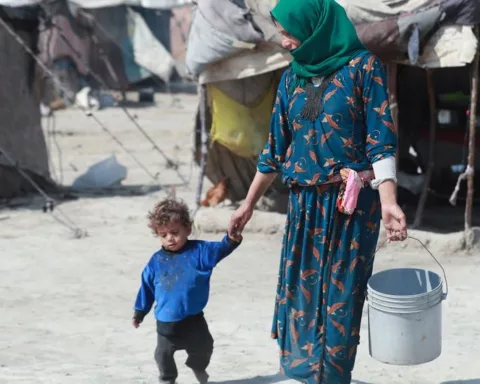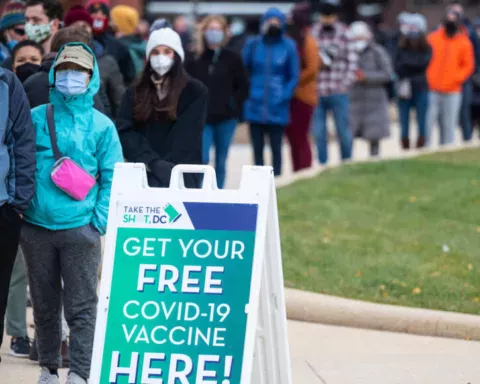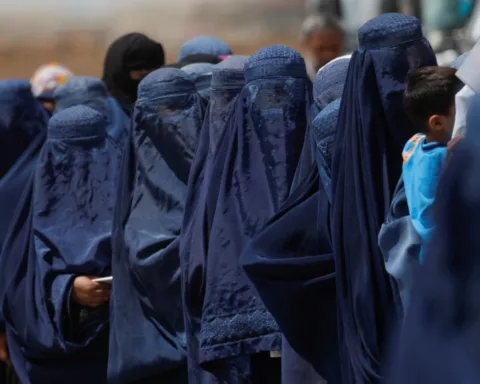U Cho, a sixty-one-year-old farmer from the Mandalay region, in central Myanmar, has had to overcome severe difficulties all of his life. At the age of five, he contracted polio, which left him paralyzed in his left leg and put paid to his plans of becoming a monk after completing his primary education. “With no hope of joining public service I did not think I would make it in life,” he says.
Instead, like so many others in Myanmar, U Cho became a farmer: seven out of ten people in Myanmar’s rural areas rely on farming, fishing, raising animals to earn a living. He was able to make enough to put his children through school, but he is now coping with a host of fresh challenges that are making it harder to survive
Decades of uncertainty
A recent study by the Food and Agriculture Organization (FAO), to assess the pandemic’s impact on family farmers in Mandalay and other regions of Myanmar, suggests that the climate has changed significantly over the past few decades. 95 per cent of farmers surveyed said that this has led to lower, or non-existent crop yields.
Changes in climate patterns make it difficult for smallholder farmers to know when to begin ploughing, sowing, and cultivating crops. And, with low rainfall in the region, it is a challenging environment for those who solely rely on rainwater: this year, U Cho lost five acres of sesame due to drought.
The measures introduced to control the spread of COVID-19, especially those that limit movement, are making matters worse. Many poor people, who were already scraping by on meagre resources before the pandemic, are now facing extra pressure in terms of income sources, livelihoods and purchasing power.
“Market demand is uncertain in the time of COVID-19: and prices for the main crops we grow have decreased, whilst the price of rice has gone up”, worries U Cho. “I have to lower our daily expenses, and we are now eating more roselle than meat as our main dish,” he added.
Looking to a more resilient future
In response, the UN and the Myanmar authorities are finding ways to address the lost income and work opportunities, additional expenses, and decreased agricultural production brought about by the pandemic, as well dealing with the ongoing effects of climate change.
“We cannot lose sight of multiple challenges that farmers face which affects productivity”, says Xiaojie Fan, FAO Representative to Myanmar. “As we respond to the immediate impacts of COVID-19, we need to maintain our support to the government and farmers, to mitigate the risks of the pandemic in terms of food security and nutrition, and help make the country more resilient to future shocks and stresses”.
A key FAO-backed home gardening programme, set up in response to COVID-19, involves providing varieties of vegetable seeds to more than two thousand families. As one of the beneficiaries, U Cho received five types of vegetable seeds, and was able to harvest the vegetables for home consumption, and sell the surplus.
The FAO and agriculture ministry also supports training on climate-smart agriculture, which covers best practice soil, water and nutrient management techniques, and practices to improve crop yields and production. These methods are designed to help smallholders tackle climate-related challenges, improving food security and nutrition, and improving productivity and livelihoods.
Before the pandemic, U Cho had established a demonstration plot with the knowledge he gained from the programme, and began training other farmers in climate smart agriculture techniques.
In March, however, training sessions in most of the villages involved in the project had to shut down, as makeshift bamboo gates were closed, and visitors refused access, to help slow the spread of the disease.
Since then, FAO has put COVID-19 prevention measures in place, to protect staff and community members, providing COVID-19 informational materials to communities, and provided soap and masks to farmers to instil confidence amongst community members.
U Cho has now managed to train 30 farmers in his own village, and 76 farmers in three adjoining villages, and is hopeful that there are better day to come: “I believe that if everyone plays their part completely, we shall overcome this crisis.”





